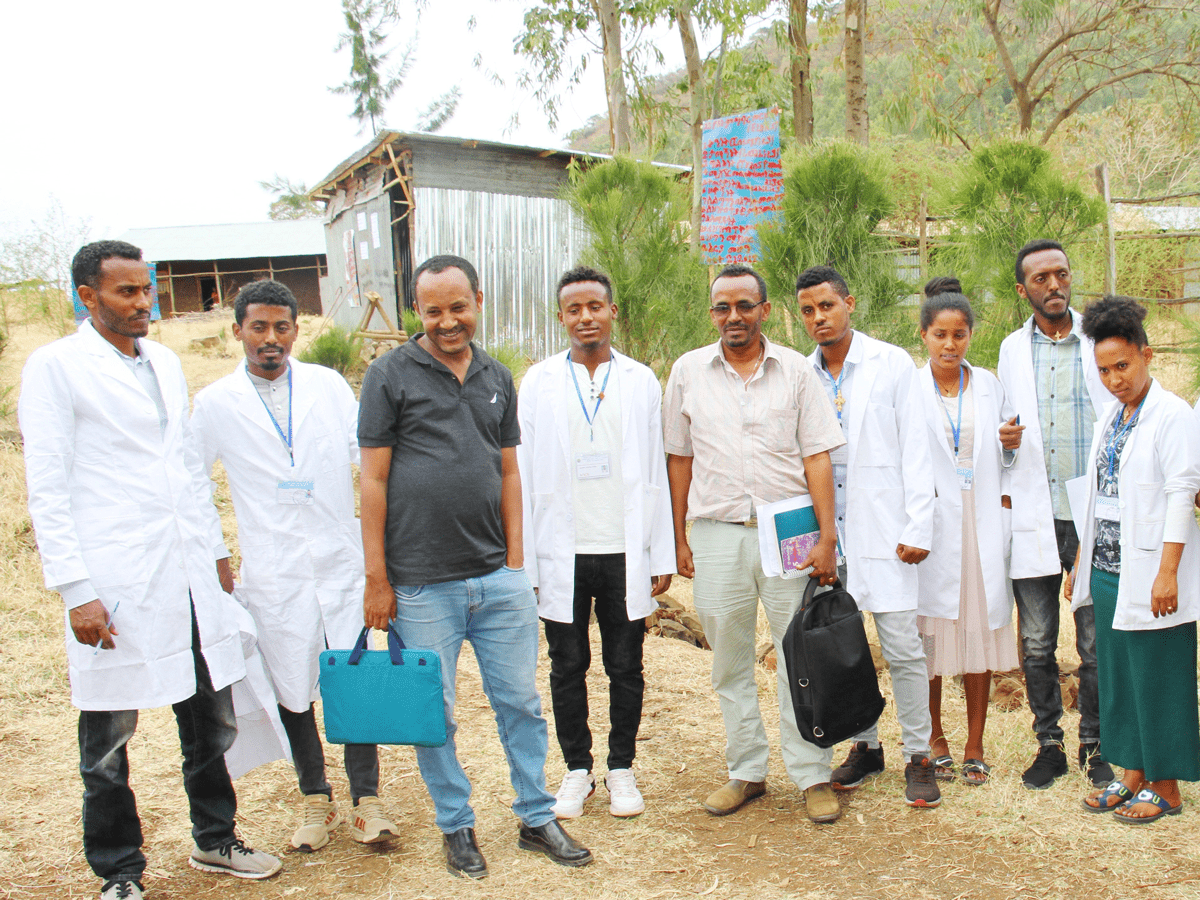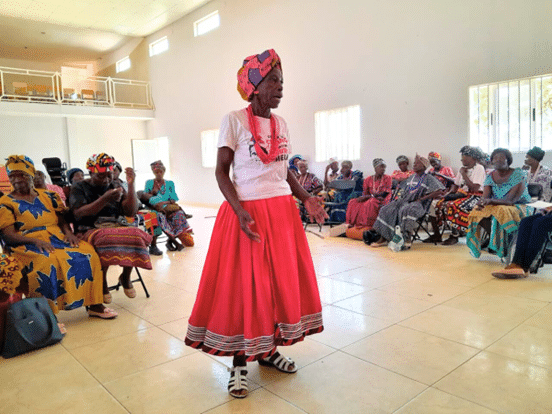On April 25, World Malaria Day, ICAP highlights the life-saving work of our country team in Ethiopia to improve malaria diagnosis and treatment in rural, high-burden areas of the country.
Yeraber Health Center, 220 kilometers (136 miles) away from Bahir Dar, the capital of the Amhara Regional State of Ethiopia, is one of the hardest-to-reach health facilities in the region. Rains and overflowing rivers make it physically inaccessible for nearly five months out of the year, hindering any technical and logistical support. This has led to regular stoppages in essential diagnostic and treatment commodities and capacity building for staff.
“In the months of October and November, where malaria outbreak often occurs, nearly 90 percent of our clients are malaria cases,” Semagn Kibret, head of the Yeraber Health Center said. “There is nothing as painful for health care workers as facing shortages of resources to deliver the required level of medical care and service to patients in critical conditions. We had serious shortage of antimalarial drugs and diagnostic supplies, considerably affecting the quality of care we deliver to malaria patients,” he added.
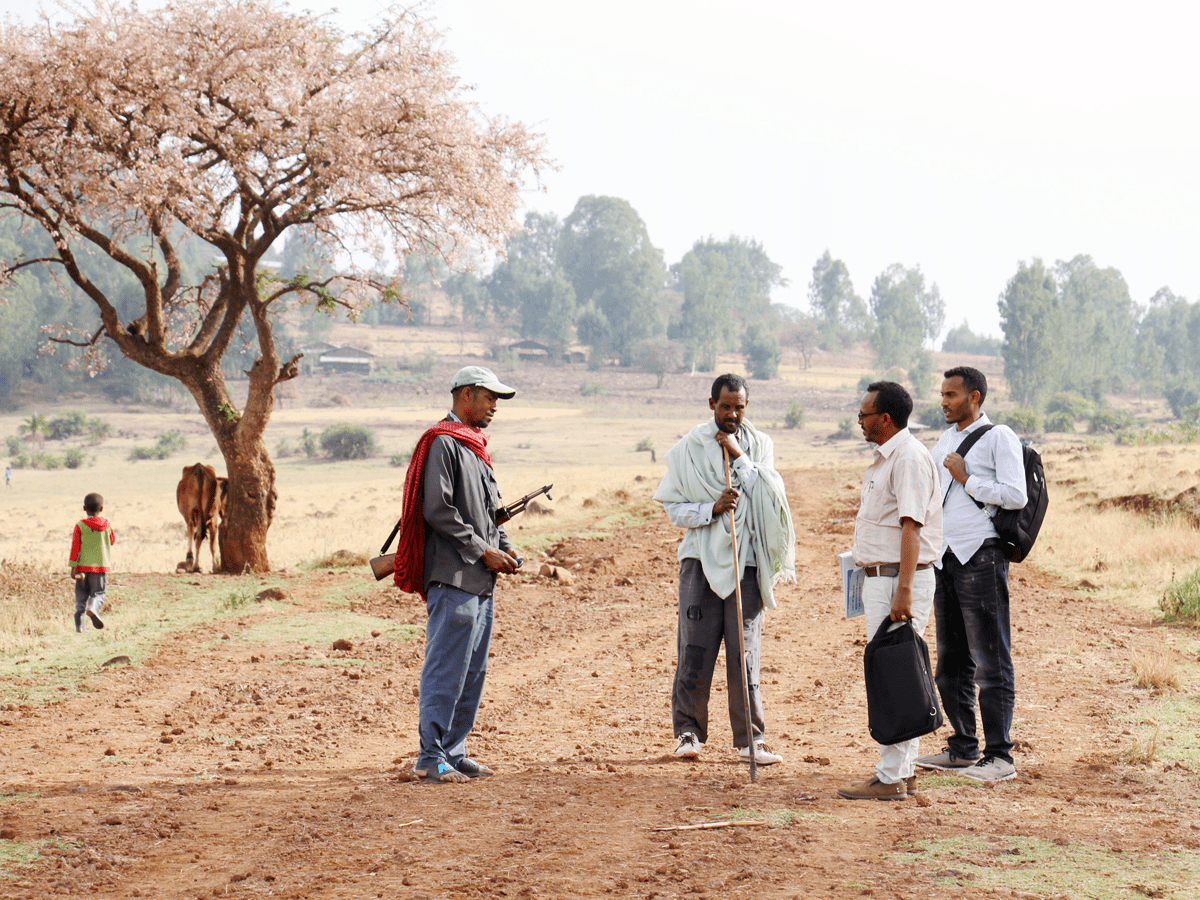
MDTA mentors engaging in community conversation about malaria diagnosis and treatment
Adamu Zemen, one of the clients of Yeraber Health Center, said, “We have nowhere else we can go except this health center when any member of our family gets sick. Despite the commitment and professionalism demonstrated by the health care workers, I saw them many times feeling anxious and regretting not being able to deliver the desired quality of services due to reasons related to shortage of medical supplies and reagents.”
Semagn Kibret remembered the hardship the community used to undergo earlier: “We used to refer patients with critical malaria cases to Finote Selam hospital, which is 50 kilometers away from here, as we were facing acute shortage of medical inputs and supplies. After being transported on mule or carried by people with a locally made stretcher for about two hours, they had to make a bitter struggle once again to cross the river, which claimed many lives during the rainy season. Only if they were lucky, the referred patients reached the hospital after passing through terrible experiences.”
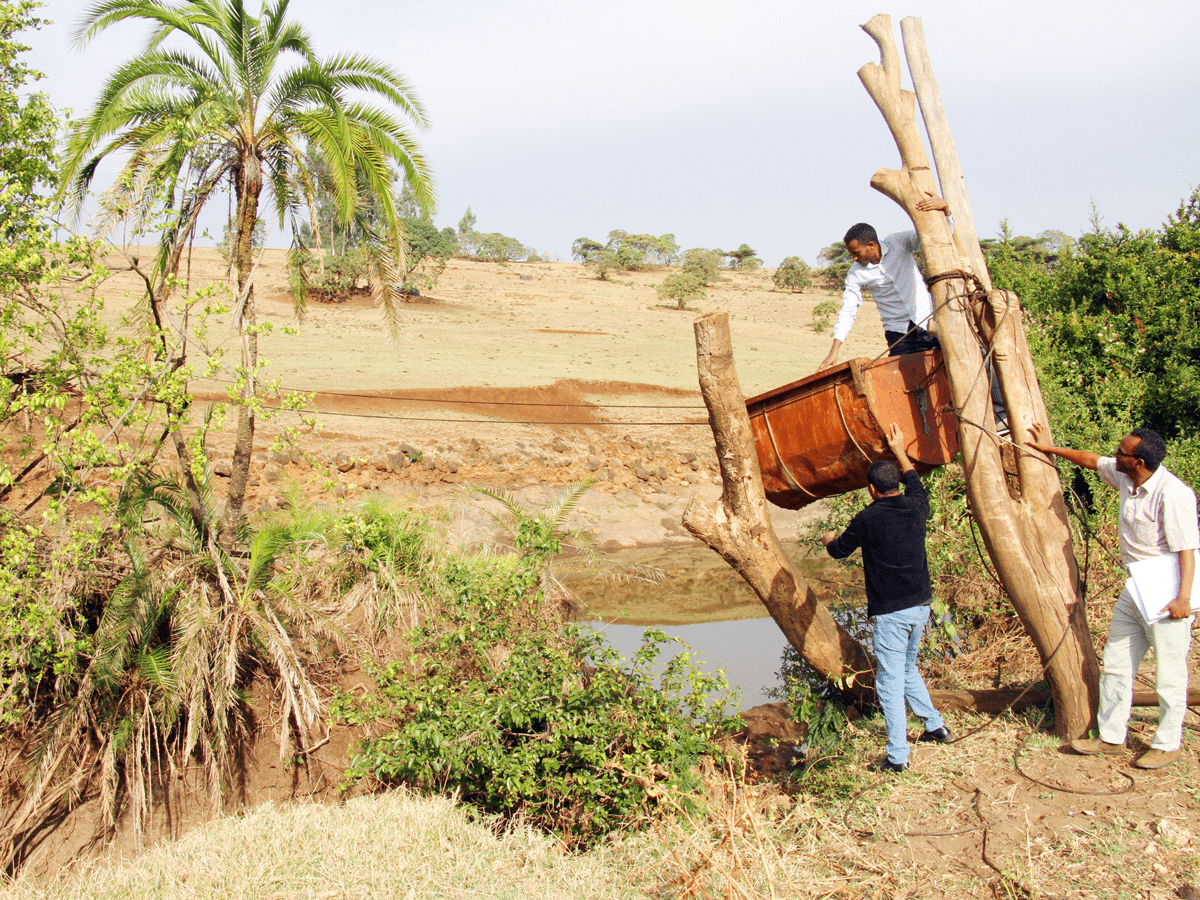
MDTA mentor boarding a locally made airboat to cross a river
Yeraber Health Center is one of the health facilities in the high malaria burden districts in the Amhara region supported by the PMI Malaria Diagnosis and Treatment Activity (MDTA) implemented by ICAP at Columbia University. The health facility is permanently inaccessible via vehicle, but appreciating the overwhelming challenge the community is facing, the MDTA team since 2019 has taken the courageous step of crossing the overflowing river using an airboat made of local resources by the community, and further walking for about two hours on foot to reach the health center and community to provide comprehensive technical and logistic support.
“In the hard-to-reach areas, the risk of contracting malaria and dying from it is much higher due to suboptimal implementation of proven malaria prevention, diagnosis and treatment interventions,” Simeneh Atnafu, MDTA program manager at ICAP’s regional office in Amhara region stated.
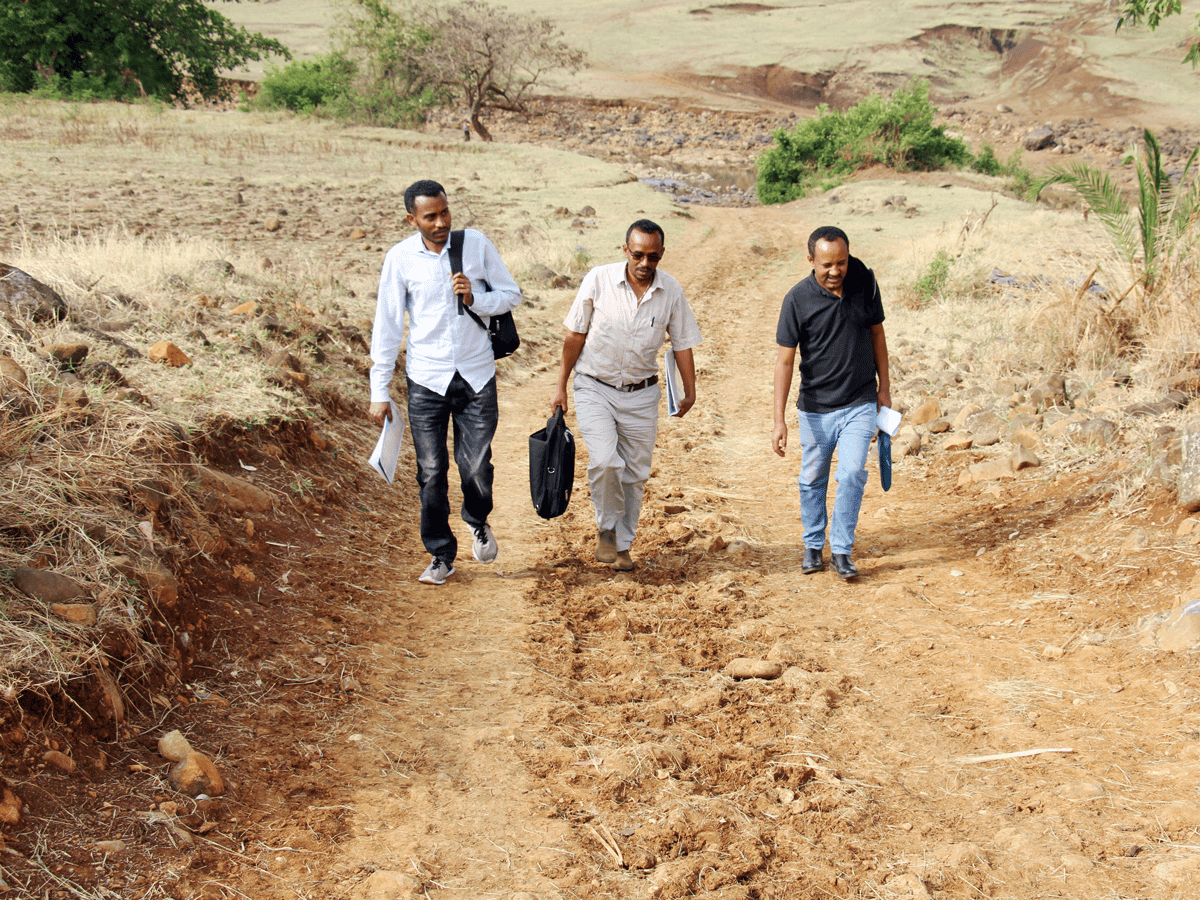
MDTA mentors on a 2-hour walk to the health center
The MDTA team has trained and provided onsite mentorship to clinical and laboratory personnel on fever case management and laboratory diagnosis of malaria, respectively. It also provided the health facility with essential national guidelines, manuals, standard operating procedures, registers, provider support tools including job aids, bench aids, desktop references and M&E tools, and QA/QC formats. Further, it equipped the adult and pediatric outpatients clinics with critical equipment for proper fever case management, and provided more than 35 laboratory equipment and test consumables for quality malaria diagnosis. Additionally, it strengthened facility-level malaria data quality assurance for epidemic detection and monitoring disease burden, demonstrating PMI’s unwavering commitment to reduce morbidity and mortality from malaria, even in vulnerable communities in the hard-to-reach areas.
“Thanks to ICAP’s intensive support, now we have the capacity, skills, and resources to successfully treat all our patients,” Semagn acknowledged. “PMI’s mentorship support has improved the competency, skills, and commitment of our laboratory personnel and clinicians so they are capable of effectively diagnosing and treating malaria cases,” he added.
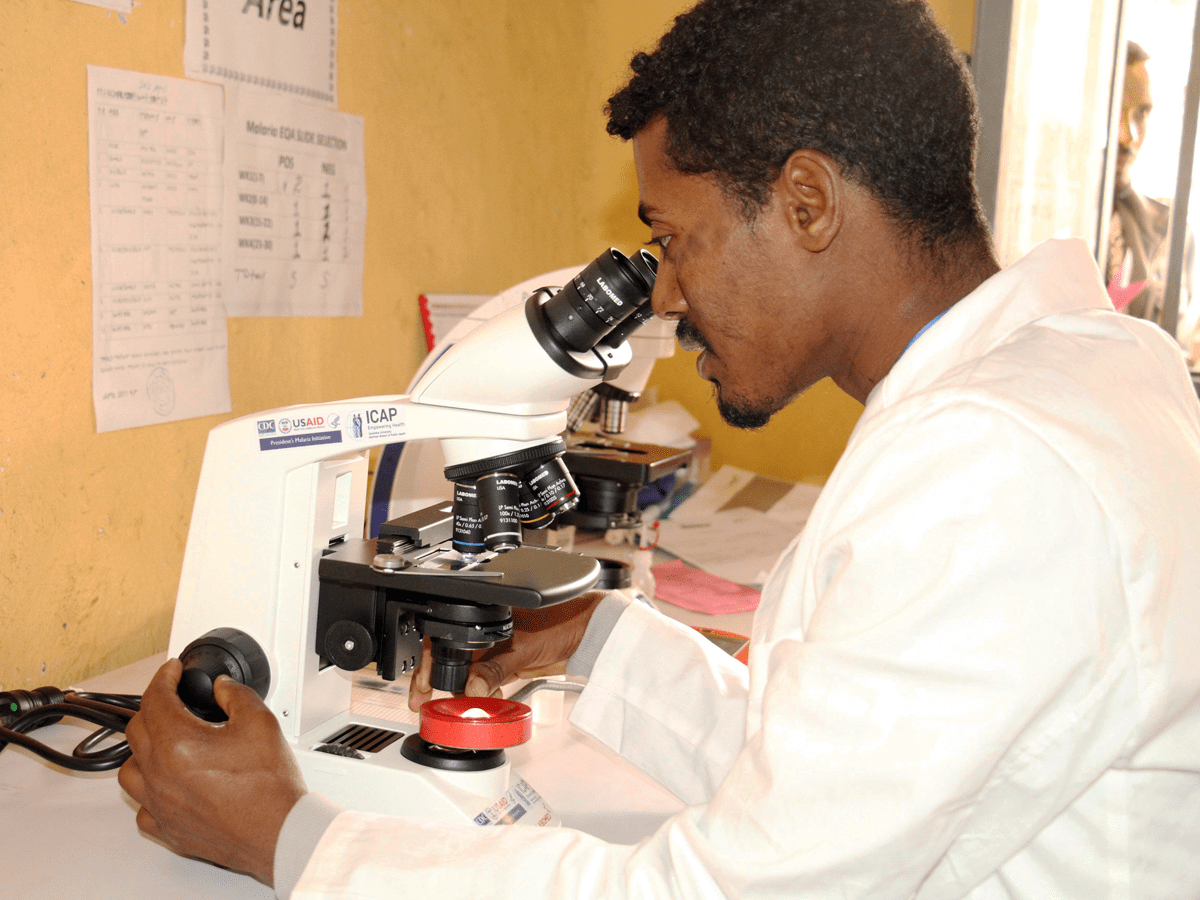
Mr. Amare Gashaye, a laboratory technician, examining a blood film for malaria parasites using microscopy
Amare Gashaye, who is serving as laboratory diagnosis expert at the Yeraber health center, testified to his exciting experience with ICAP’s support:
“In October 2019, I participated in a five-day-long malaria laboratory diagnosis and quality assurance training organized by ICAP in Bahir Dar town where I acquired enormous knowledge and practical laboratory skills. As a result, I am delivering better quality diagnosis service in terms of parasite detection, species identification, and quantification of parasitemia.
Earlier, I used to determine the result based on only thick blood film diagnosis, which was a substandard practice. After the training and mentorship support I received, I have started to prepare both thin and thick blood films for each patient, and this procedure added a great value to the accuracy of test results.
Moreover, through the support, we have now enrolled in a quarterly external quality assessment (EQA) scheme, which again helps us to improve our quality of services. This had never been practiced by the health center before. The EQA results received so far revealed 93.3 percent of agreement (result concordance) on average. Had it not been for PMI’s capacity building training and intensive mentorship support, this outstanding result would have not been true.”
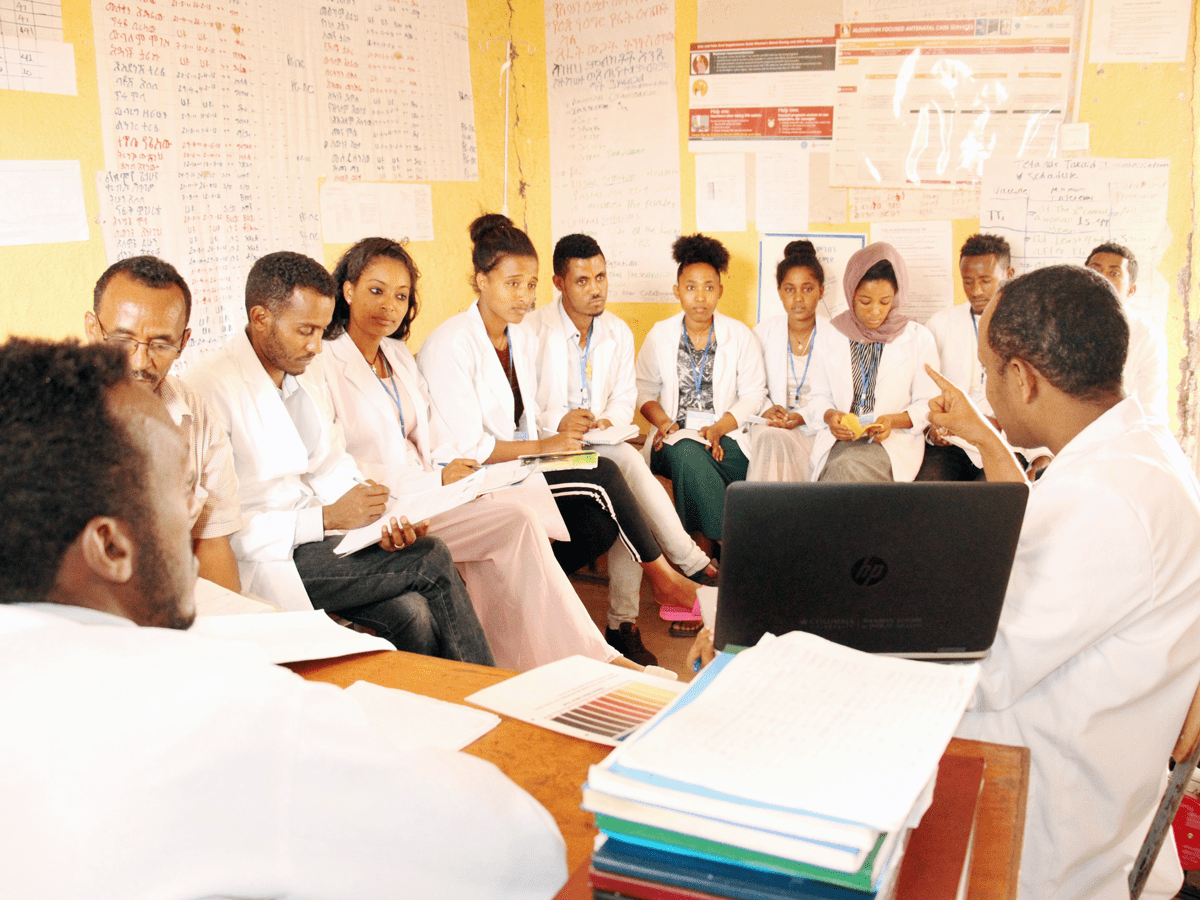
Onsite orientation session on malaria case management at Yeraber health center
“Such an innovative and daring approach to reach inaccessible health facilities has brought a remarkable success enabling the community to access improved malaria diagnosis and treatment services,” added Simeneh.
Building on the successes of the past Malaria Laboratory Diagnosis and Monitoring (MLDM) Project, the new PMI-funded Malaria Diagnosis and Treatment Activity, which is being implemented by ICAP in Ethiopia, is currently supporting 15 hospitals, 141 health centers and 611 health posts in 25 districts of the Amhara regional state.
A global health leader since 2003, ICAP was founded at Columbia University with one overarching goal: to improve the health of families and communities. Together with its partners—ministries of health, large multilaterals, health care providers, and patients—ICAP strives for a world where health is available to all. To date, ICAP has addressed major public health challenges and the needs of local health systems through 6,000 sites across more than 30 countries.


